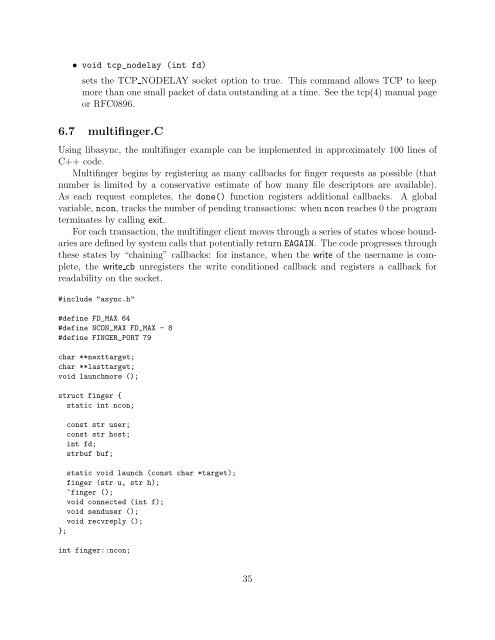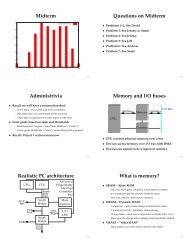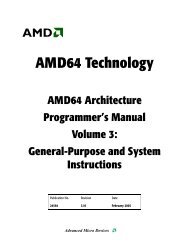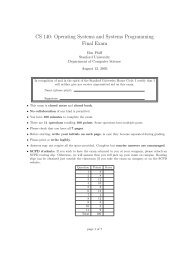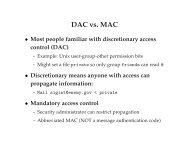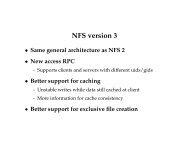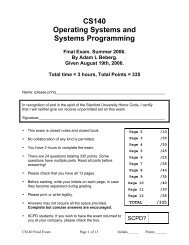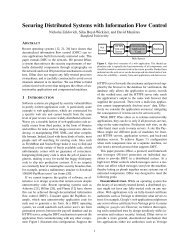Using TCP Through Sockets
Using TCP Through Sockets
Using TCP Through Sockets
You also want an ePaper? Increase the reach of your titles
YUMPU automatically turns print PDFs into web optimized ePapers that Google loves.
• void tcp_nodelay (int fd)<br />
sets the <strong>TCP</strong> NODELAY socket option to true. This command allows <strong>TCP</strong> to keep<br />
more than one small packet of data outstanding at a time. See the tcp(4) manual page<br />
or RFC0896.<br />
6.7 multifinger.C<br />
<strong>Using</strong> libasync, the multifinger example can be implemented in approximately 100 lines of<br />
C++ code.<br />
Multifinger begins by registering as many callbacks for finger requests as possible (that<br />
number is limited by a conservative estimate of how many file descriptors are available).<br />
As each request completes, the done() function registers additional callbacks. A global<br />
variable, ncon, tracks the number of pending transactions: when ncon reaches 0 the program<br />
terminates by calling exit.<br />
For each transaction, the multifinger client moves through a series of states whose boundaries<br />
are defined by system calls that potentially returnEAGAIN. The code progresses through<br />
these states by “chaining” callbacks: for instance, when the write of the username is complete,<br />
the write cb unregisters the write conditioned callback and registers a callback for<br />
readability on the socket.<br />
#include "async.h"<br />
#define FD_MAX 64<br />
#define NCON_MAX FD_MAX - 8<br />
#define FINGER_PORT 79<br />
char **nexttarget;<br />
char **lasttarget;<br />
void launchmore ();<br />
struct finger {<br />
static int ncon;<br />
const str user;<br />
const str host;<br />
int fd;<br />
strbuf buf;<br />
static void launch (const char *target);<br />
finger (str u, str h);<br />
~finger ();<br />
void connected (int f);<br />
void senduser ();<br />
void recvreply ();<br />
};<br />
int finger::ncon;<br />
35


